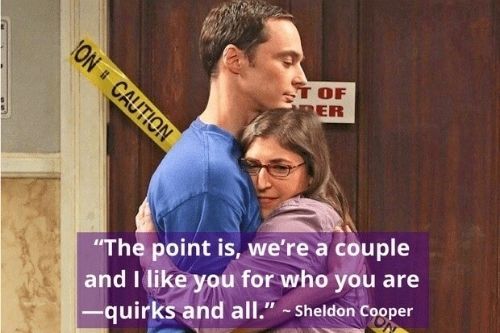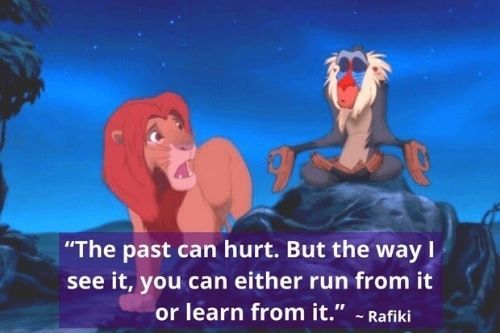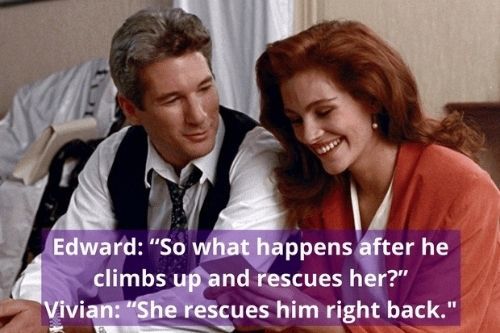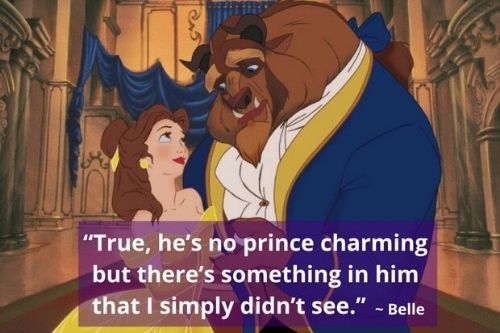Relationships can create our greatest sorrow or our greatest joy and this does not only apply to just romantic relationships. Conflict or unease with our friends, family and coworkers can be a great source of stress overshadowing other areas of our lives, zapping our sense of joy and well-being.
It’s easy to take on cultural beliefs or myths as to what has to happen to make a great relationship. In reality, these myths can prevent us from creating deep and meaningful connections. The truth is relationships are mostly like a beautiful work in progress that can take commitment and openness to new ideas and ways of being to grow and evolve over time. Below we explore four common misheld beliefs about relationships and ways to overcome them:
MYTH 1: A Great Relationship has No Negative Behaviours

It is common to think that in great relationships that are meant to be that everything flows perfectly. That there is no negative behaviour and this type of behaviour could be a sign that the relationship is not right for you.
In reality, most relationships have downtimes manifesting in negative behaviour. Life is just challenging sometimes. However, the challenges of relationships are an opportunity for growth. To learn how to be more kind and loving, by seeing past negative behaviours and valuing others for the wonderful person they inherently are.
I am not talking about enabling abusive behaviour, but am referring to learning and growing in relationships, which is often through mistakes. In fact, if you want everything to be good all the time, you can become prone to sweeping problems and negative behaviour under the carpet, which can lead to you being stuck in a relationship that never matures or gets any better.
By accepting the other persons’ negative behaviour without judgement, it gives them a chance to grow. The negative behaviour in a non-reactive environment can be a gift in strange wrapping paper. It can be an opportunity to get to the real cause as to why your partner might be behaving that way and heal it. For example, they may have been hurt in the past. You getting close to them may trigger a subconscious defensive behaviour, so they don’t let you get too close to avoid potentially being hurt.
By not reacting and buying into another’s behaviour, you give your partner a strong message that you love them and are there for them no matter what. You are letting them know this is not the past and you are not going to hurt them. They can feel safe and relax into the relationship with you.
5 Steps to work through negative behaviours:
- When someone you know is behaving negatively, the best thing to do is not to engage with them if you feel emotionally unstable too, as this often escalates the situation. Allow space and time for you both to process your emotions.
- If you feel stable and non-reactive, hold a loving space for the other person, let them know you are there for them (this can even just be as an energetic thought). You are empathetic (can see how they would feel if you were in their shoes) and accept them as they are. Don’t try to fix anything, just let them be while they are highly emotional.
- After the emotions have passed and you both feel calm and centred, take a moment to be still and listen to your intuition (your wise voice within) and what it is telling you. You may need to set a boundary with the other person or go over the situation and see how one or both of you can do things differently in the future.
- Express to your partner, friend or work colleague, the things that are important to you. Say it in a way that can be heard, that is, without accusing them. Instead focussing on the issue and how it makes you feel. Find out also what is important to them and develop a win/win situation.
- Negative behaviours can create a great relationship if both parties choose to see it as an opportunity to work through and let go of any problems or unresolved issues. Negative behaviour can create connections and true intimacy as both people work lovingly together to understand and embrace each other as they are.
MYTH 2: A Relationship Will not Work Without Trust

Trust can be one of the biggest challenges in relationships. When people enter into a relationship, there is almost an unspoken rule that the other will never hurt them. So when they do, it can feel like a betrayal.
Breaches of trust can vary in degrees, from not turning up at an agreed time, to the larger hurts such as gossiping and affairs. Ideally, the ones we love would never hurt us, however, they are often learning to trust and be trustworthy themselves. Often people have never had a relationship where they feel truly safe so that they can open up and be themselves. A committed relationship is a wonderful opportunity to create that environment together.
When breaches of trust occur, ascertain how committed the person is to the relationship and whether they can work on their issues to create different patterns of behaviour moving forward. If they can, it is possible to create a relationship that is even stronger and more functional than before the breach of trust.
Five ways to build a trusting relationship
- The first and foremost rule of trust is to learn to trust yourself. Everything else will stem from this. It is very hard to trust another when you don’t trust yourself. This is a skill that can be developed. You may have been taught to believe that others know better for you than you do. Learn to tap into your intuition—your inner voice guiding you safely on your journey through life. If you feel disconnected from your intuition, know that, like a muscle, it can be strengthened in time, with practice.
- Acknowledge that we are all learning as we proceed through our life journeys. If your trust is betrayed, although this is often easier said than done, try not to take it personally. A breach of trust is often someone acting out their unresolved issues on you. For example, a romantic partner may have had a father who had affairs. Instead of addressing unresolved hurt, the son may be unconsciously acting out by having affairs in his own relationship, repeating the patterns of his father. No one ever consciously hurts another, this type of behaviour is done unconsciously. Even if affairs are done secretly, all family members can sense them happening at an energetic level.
- If someone breaches your trust and you feel hurt, take the time to heal your feelings. It is possible when you are deeply hurt, to tap into some of your own unresolved issues from the past. In doing this, you can observe and let go of unwanted feelings to feel calm and centred once more.
- If the betrayer thinks it is OK to breach trust and the betrayed cannot see the possibility of healing and true forgiveness, it may be best for both people to move on and heal individually.
- If both parties choose to consciously work through the breach of trust, the betrayer must commit to engaging in new, healthy and trustworthy ways of being and the betrayed must commit to having an open heart and believing in the possibility of forgiveness. Therein lies a real opportunity for growth and the development of deeper connections moving forward.
Myth 3: Money is the Answer to all Problems

The four main issues in relationships are trust, communication, loyalty, and money. These can cause conflict and heartache. A common belief is that money fixes everything, including relationships, and that when you have money, everything else will fall into place. Many people strive for years and years to be wealthy or successful and when they “get there,” feel empty inside.
Nicole Kidman said that when she won an Oscar, she still did not feel truly happy inside. This sent her on a personal journey to discover that the true source of happiness is within. While it is true that it’s important to have your financial needs taken care of so that you feel you can live comfortably, beyond survival, money in itself is not the source of happiness.
Happiness is a feeling. Therefore the key to happiness is to look inwards and work with your feelings. Our true purpose is to become more aware, more conscious and more connected in our relationships that is the key to happiness.
Top ways to move through money issues in a relationship
- Right from the beginning of your relationship develop the ability to talk calmly about money. If you feel completely neutral, open and ideally calm, when you talk to your partner about money, it is a sign that you are free of any issues you may have around money. It is common for couples to argue about money as it can trigger a real issue such as control, security, and self-esteem, issues often hidden behind money. In a growing, healthy relationship based on love, confronting and working through these issues, lead to greater awareness and connection.
- Is money causing you to feel a lack of worth? If so, work together as a team to resolve any money issues, as money affects both parties. If you are overspending, develop a plan and a budget, and stick to it until you have met your goals. Over time try to develop a free and easy relationship about money, so talking about money issues is like planning what you are going to do on the weekend.
- It can also be helpful to look at your beliefs around money. If you find yourself thinking: money is the root of all evil, this is likely to limit the money you attract into your life. That is why it is referred to as a limiting belief. Change your mindset to one that sees money as a positive, if you want it to have positive effects in your life.
- Understand your partner’s perspective. Studies show that men and women have different perspectives on money. Women tend to think of money as a security item, and they like to save it for emergencies. However, men like to take risks and are more likely to see money issues as a threat to their self-esteem. Hence, you should keep in mind what ‘money’ actually means to your partner in the relationship.
- Whilst ensuring you have financial security work on your internal world too. Then you can have it all. Learn to become aware of your thoughts and feelings and how they affect your behavioural patterns and relationship. Fluctuating thoughts and feeling can make you feel unstable. Becoming aware of these feelings can help settle them. Learning to tap into your still, calm centre allows for true stability and allows this energy flow into your relationship; enabling you to connect in peaceful, and loving ways.
Myth 4: My Partner Will Complete Me

It is common to believe that when we find that perfect someone, everything will fall into place and we will live ‘happily ever after’. This myth is perpetuated by many of the stories we see in romantic Hollywood movies.
In fact, our partner can complete us, but not in the way we may think. They can be a gift in strange wrapping paper. Our romantic partner, friends, family, and work colleagues can be great teachers on our journey back to wholeness—if we choose to see it this way.
Often, no one can press our buttons like our significant other and this is actually the gift that they give us. They reflect back to us the areas where we can evolve—bringing us one step closer to feeling more consistently happy and a deep sense of inner peace.
Whether we fall into the trap of blame and criticism, rather than seeing any challenges in our relationship as a gift, is up to us. Relationships can be a wonderful journey of discovery if we learn to appreciate and “see” each other for what we really are—divine love in its purest form.
Top Ways to Bust the Myth
- Seeing your partner as the answer to everything in your life—your best friend, lover, parental figure, mentor, companion, helper, comforter, confidant, happiness, and entertainment—can be a lot of pressure on that person! It can even seem like an overwhelming burden and, in some instances, an impossible task. A partner will support you in some ways but is usually not the answer to everything. Often a relationship is a journey that encourages you to learn how to step into your empowered self.
- When we want our partner’s love—but don’t need it—our relationship will seem lighter and freer. This is because each other’s energy isn’t being drained in order to prop the other up. Instead, energy is being used to co-create a beautiful life together. Life will seem slower and heavier if either partner is trying to live their life and control their partner’s too!
- When you meet your partner halfway, life becomes more buoyant and fun. Instead of trying to fulfil your partner’s needs and first taking care of your own emotional needs, you become freer to enjoy the love. Of course in a relationship, during challenging times your partner may need assistance until they can progress to being able to support themselves, but the journey to love begins when you first learn to unconditionally love yourself.
- When you try to fill each other’s holes in areas where you don’t feel whole and secure, you keep each other weak. The best support you can give your partner is to be there for them; to listen to them and offer supportive affirmation: I know you are strong and wise and you will sort this out. I am here for you and I see the best in you no matter what challenge you may face. By holding this space of loving presence for your partner, you can facilitate the healing of any unresolved issues they may be facing and create an emotional foundation upon which your relationship can become strong and stable.
Communicate with your partner. While they are not there to complete you, when you are in a relationship, the unspoken rule is that you and your partner are in it to create an experience together that is mutually beneficial. While it would make life a lot easier, your partner is not a mind-reader and part of your evolution as a couple is to learn to communicate in a way that you both understand. Communication is the area that people struggle with the most and is the number one cause of relationship breakups.








